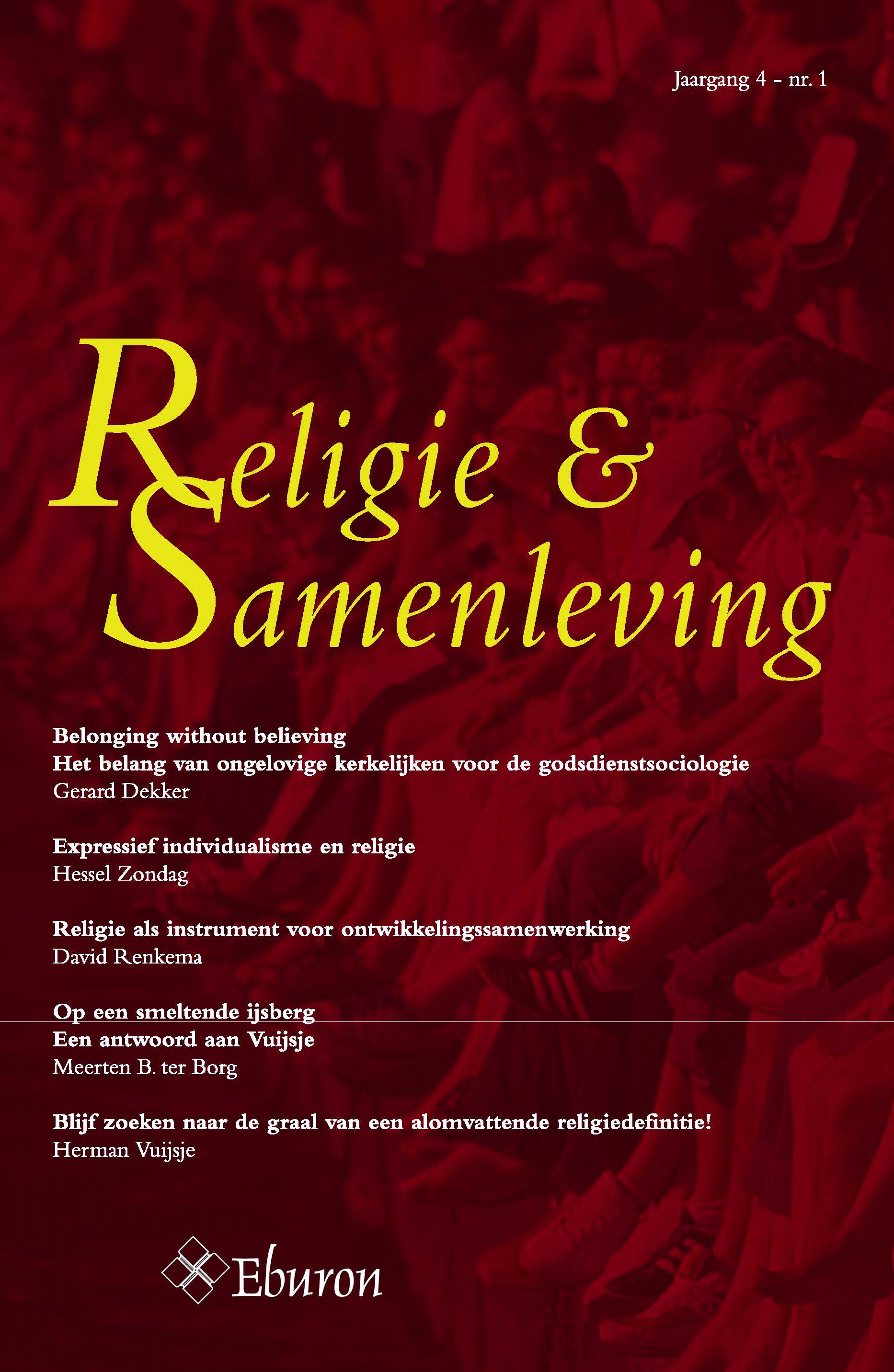Expressief individualisme en religie
DOI:
https://doi.org/10.54195/RS.13133Samenvatting
This article reports on a study of the relation between expressive individualism and religiosity. Data were collected among participants of Internet forums about New Age and Christian Religiosity (N=422). By way of factor analyses four dimensions of expressive individualism were distinguished: autonomy, to set oneself apart from others, self-development and expression of emotions. The relationship between expressive individualism and religion turns out to be ambivalent and is negatively dominated by autonomy. After removing the effect of autonomy, two patterns are still visible, both characterized by a positive connection to religiosity. To distinguish oneself from others is connected to a more traditional and institutional religiosity, and self-development more to private religiosity. The explanation of this (hidden) longing for religion is sought in the pressure resulting from an expressive individualistic way of life. Some suggestions for further research are given at the end of the article.




